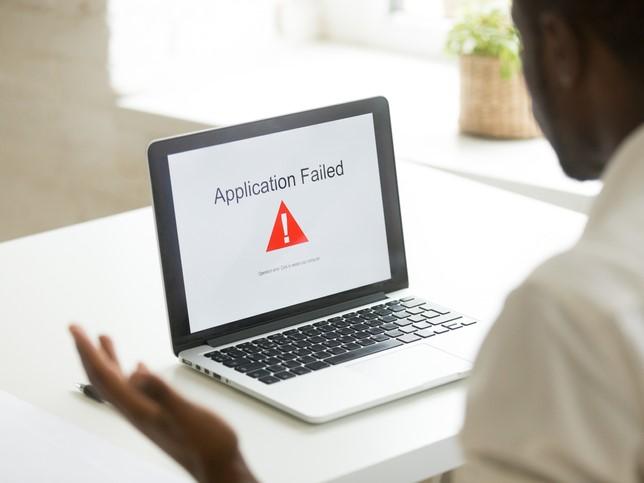
We must remove technology worries from the student cost-of-living crisis
You may also like
“Digital inclusion” has become something of a buzz phrase in higher education of late. The term aims to cover the importance of access to technology, along with confidence and proficiency, and ensuring that digital interactions are open to all students. As universities utilise more elements of online learning, ensuring that students are actually able to use technology has become an essential part of how we support the leap to degree-level study. But from our experience, it’s the fundamental problem of a lack of access to a suitable device and an affordable, reliable wi-fi connection that’s the bigger issue.
An autumn 2020 survey of 2,500 undergraduate and postgraduate students at the University of Bristol, where we work, found that one in eight experienced problems with technology access such as to a computer “always” or “often”, with some students indicating that their learning was taking place on a smartphone because of hardware issues. Internet access was a more widespread problem, with almost a quarter (23 per cent) of our students experiencing connectivity issues “always” or “often”. Similar barriers were identified by the 3,700 students who responded to our Covid student experience survey, with 30 per cent struggling to easily access the hardware they needed for online learning.
- THE podcast: bridging higher education’s new digital divide
- Steps to improve digital accessibility at your institution
- How universities can ensure first-generation students and their families feel connected
Students’ finances are now more stretched than ever as the cost-of-living crisis bites, but many had been struggling with costs even before this latest wave of inflation.
A recent survey by the Scottish National Union of Students found that a third of students (35 per cent) had considered dropping out of their course because of financial difficulties and 31 per cent relied on commercial debts to get by, with the most vulnerable students, including those from widening-participation backgrounds, hardest hit. Meanwhile, 17 per cent of our students at Bristol say they have “severe” or “very severe” money worries.
While costs continue to spiral, students’ incomes are not keeping pace. For students living outside London, the maximum maintenance loan for the 2022-23 academic year is £9,706; only a small increase on the £9,488 they could access last year. In response, many students will be depending on their parents to contribute for even basic living costs – and in an increasingly squeezed environment.
When we add the need for hardware and connectivity into the mix – a laptop that meets the requirements of their course, decent broadband access and (in many cases) a smartphone to access university apps and other tools to help them stay connected and engender a sense of belonging – the situation could get desperate for many.
There are already so many hidden barriers to student success in higher education – from differences in social capital and, more recently, disruption to secondary education, to rising levels of mental health issues reported by young people – digital access inequity could feel like the “final straw” for some. As such, universities must do more to address digital exclusion. And doing so could help address many other challenges, too. We don’t just mean the obvious ones, like being able to access learning resources, but also, for example, reducing feelings of stigma and otherness.
At Bristol, we developed a digital equity policy during the pandemic, based on the principle that no student should be impeded from accessing their teaching because they can’t afford a suitable device or reliable connectivity. A major part of this initiative has been financial support through our digital support fund.
Since March 2020, we have distributed more than £200,000 to support students with the costs of hardware and connectivity where they are unable to afford these themselves. For most students, this means a standard £350 contribution towards a laptop, or up to £500 for students on courses where higher specification equipment is needed, although the fund can be used to help with other costs, such as broadband. Addressing digital inequity has also included initiatives to improve connectivity across campus, offering technical support via laptop clinics and help with becoming digitally ready before students even arrive on campus.
These initiatives have been supported from the very top of the institution, but we’ve also enjoyed the enthusiastic and generous support of philanthropic donors and alumni who have contributed to our student hardship funding. However, at a time of increasing financial pressures and the potential growth in the number of students needing assistance, this may not be a viable model in the longer term.
Many institutions are taking a similar approach, but what can be done at the national level to address this growing challenge facing students?
First, the maximum maintenance loan needs to be more closely linked to the increased costs students are facing – both in terms of the impacts of inflation and the changing nature of university study. It cannot be left to students or their parents to make up the shortfall, with inevitably disproportionate impacts on those who have less. Second, the government should consider providing central funding on an ongoing basis to directly tackle digital exclusion among young people.
Students should be free to focus on what they come to university to do – make the most of their experience and unleash their potential – rather than worrying about whether they will be able to afford to engage.
Sarah Purdy is pro vice-chancellor of student experience, and Steve Hall is director of student services and deputy director, education and student experience, both at the University of Bristol, UK.
If you would like advice and insight from academics and university staff delivered direct to your inbox each week, sign up for the Campus newsletter.
Additional Links
For more advice and resources on this topic, go to our Spotlight collection Helping students through the cost-of-living crisis.




